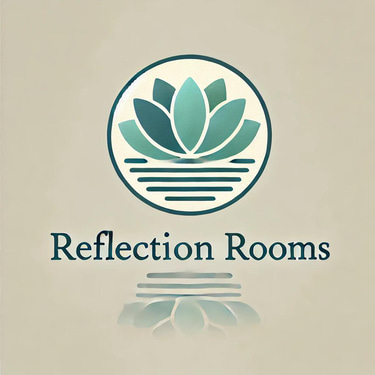Choosing the Right Counselling Professional Body: A Comprehensive Guide
5/12/20253 min read


Finding the Right Fit for You
As a counsellor, joining a professional body is an important step in your career. These organisations help uphold high standards of practice, guide ethical conduct, and provide you with valuable opportunities for development and networking. But with so many options available, choosing the right one can feel like a daunting task. It’s not just about signing up for a membership; it’s about finding an organization that aligns with your professional goals and values.
Key Differences Among Counselling Professional Bodies
Different professional bodies cater to different needs within the counselling world. Understanding these differences can make your decision easier and more informed.
For instance, the British Association for Counselling and Psychotherapy (BACP) is one of the largest bodies in the UK, focusing on ethical practice and offering a broad range of support for counsellors across different specialties. They’re widely recognized and offer accreditation that can be valuable for your career, helping to reassure clients that you meet high standards.
On the other hand, the National Counselling and Psychotherapy Society (NCPS) places a strong emphasis on accessibility and diversity in therapy. They offer a strong support network for practitioners and are great for those who might be newer to the profession or are looking for a less traditional route into counselling. Their focus on inclusivity also means they tend to be more flexible with different therapeutic approaches and techniques.
Then, there’s the UK Council for Psychotherapy (UKCP), which is much more specialized. If you’re leaning toward psychotherapy or a more research-focused practice, the UKCP is the go-to body. They have a very high bar for training and are often involved in cutting-edge research and professional development, making them ideal if you’re looking to specialize in psychotherapeutic practices.
These examples show how each professional body has its own distinct focus, and understanding where your interests lie will help you determine which is the best fit for your career.
Factors to Consider When Choosing a Counselling Professional Body
Here are some practical factors to consider when choosing which professional body to join:
Accreditation: One of the first things to look for is whether the body is accredited by relevant authorities, like the Professional Standards Authority (PSA). This can make a big difference in your professional credibility, as some clients and employers may require members of recognized bodies.
Membership Benefits: Different bodies offer various resources, such as access to training, legal advice, and networking opportunities. For example, some organizations provide online directories to help clients find you, while others might offer discounts on professional development courses. Make sure to check what’s included and whether it fits your needs.
Cost of Membership: Membership fees can vary greatly. Consider how much you're willing to invest and whether the body offers value in return. Look at what benefits you'll get for the cost, like access to training materials, conferences, or insurance options.
Specialization: If you’ve developed a specific focus, such as trauma counselling or child therapy, you’ll want to look for a body that supports your niche. Some organizations cater to particular therapeutic approaches or groups, so take time to find the one that aligns best with your specialty.
Networking and Support: Beyond the professional training and ethical standards, the networking and support provided by the body is key. Do they offer mentoring programs, peer groups, or events that will help you feel connected to others in your field?
Choosing the Right Body for You
Choosing the right professional body can be overwhelming at first, but it’s a decision that can greatly enhance your practice. Take your time to research and assess the benefits of each body based on your needs. If you’re unsure, it’s okay to reach out to colleagues or mentors for advice based on their experiences.
Remember, there’s no one-size-fits-all choice. Some counsellors may feel at home with BACP’s comprehensive framework, while others may thrive in the more specialized environment of UKCP or the supportive, inclusive network of NCPS. It’s all about finding the organization that will support your growth and align with your professional aspirations.
In Conclusion
Joining a professional body is not just a formality—it’s an investment in your future as a counsellor. By carefully considering your career goals, the resources you need, and your area of specialization, you can make an informed choice that strengthens your practice and credibility. Trust the process, and take the time to explore the options that are out there. The right professional body will be a key part of your journey, supporting you every step of the way.
